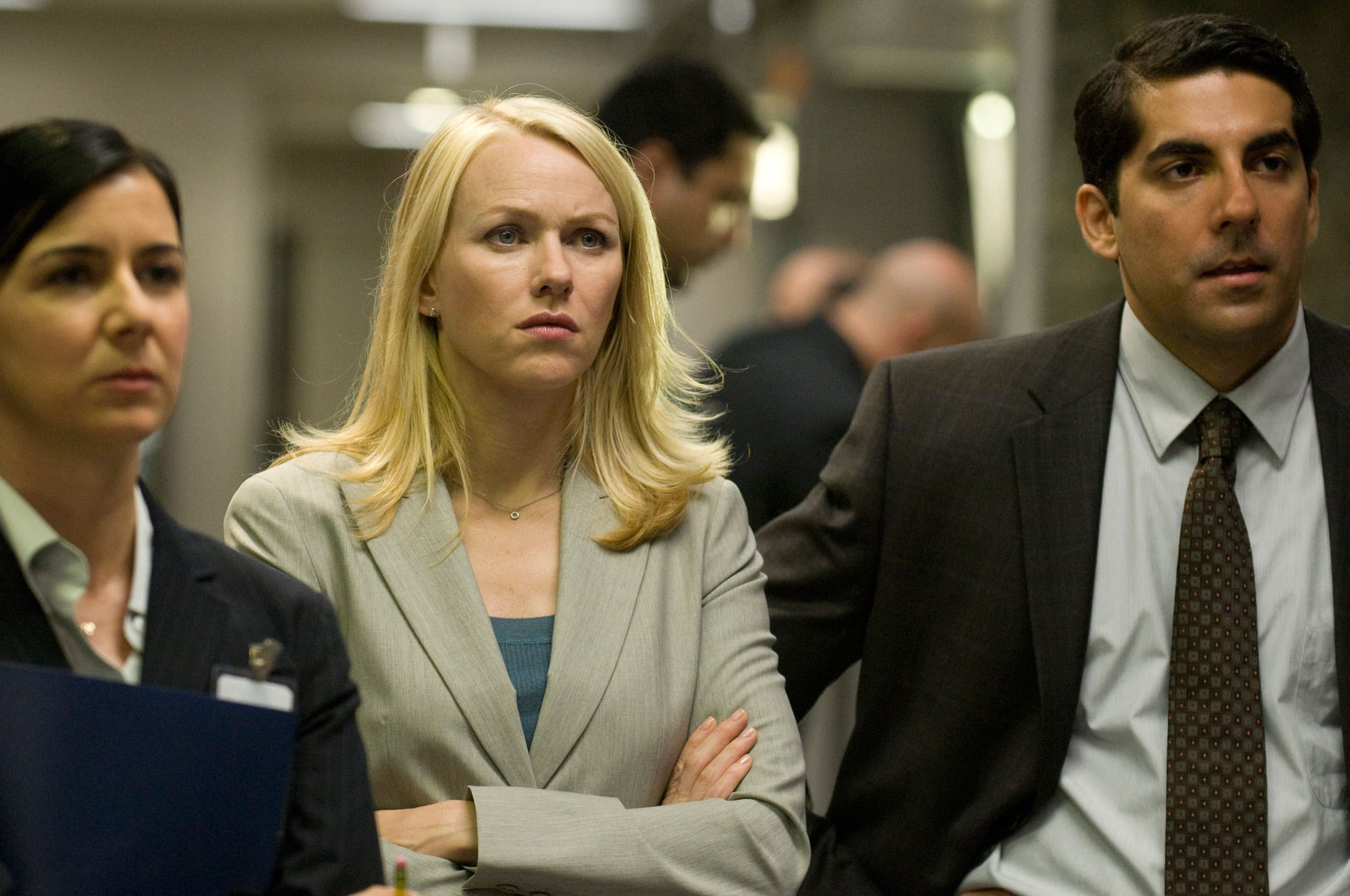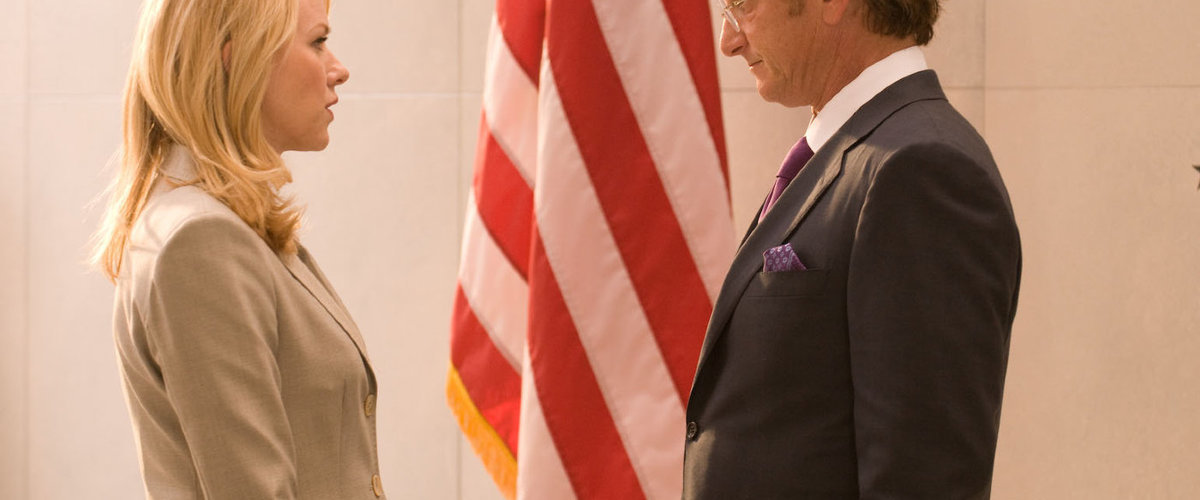 FAIR GAME
FAIR GAMEThe Spy Who Was Put Out In The Cold...
It is a truth universally acknowledged that George W. Bush is the most evil man in the history of all Creation. Whatever wicked deeds of such figures as Adolph Hitler, Robert Mugabe, Pol Pot, Osama bin Laden or Sean Penn BFF Hugo Chavez may have done (may being the operative word), all pale to the nefarious machinations of, in the words of Harry Belafonte, "the world's greatest tyrant, the world's greatest terrorist".
Not only did he steal a Presidential election...twice, (Florida in 2000 and Ohio in 2004), not only did he deliberately lie about weapons of mass destruction in Iraq in order to kill their children and steal their oil, not only did he know about the attacks of September 11, 2001 beforehand (and not just know, but planned and executed them himself), not only did he knowingly put totally and completely innocent Afghans (and anyone else who was in the wrong place at the wrong time) in the American version of a Hanoi Hilton/Auschwitz mix (Guantanamo Bay), not only did he go and personally drown black babies in the submerged streets of New Orleans, but he also, according to Fair Game, nearly destroyed a wonderful marriage.
Forgive the rather playful tone taken in the introduction (although, except possibly for the personally drowning bit, everything else is historic fact at MSNBC), but it is when Fair Game takes its focus off the central story (high-ranking members of the second Bush Administration revealing a CIA agent's identity to get back at a critic of their Iraq Intervention policy) where the film loses its way. We're treated to a domestic drama where almost anything could be substituted for the crisis tearing at their union.
Valerie Plame (Naomi Watts) is a superspy, a deep cover agent working at tracking down terrorists. Within the bowels of the CIA, she is asked about Iraq attempting to obtain nuclear material from Niger. To investigate this, Plame's husband, Ambassador Joseph Wilson (Sean Penn) goes, and finds nothing. However, the Office of Vice President Cheney, headed by his Chief of Staff, Scooter Libby (David Andrews), is determined to get the CIA to see things their way: namely, that Iraq is a growing threat to American security, and only force will stop Saddam Hussein from going after America.
In spite of Plame & Wilson, and the CIA insisting that there is no there there, Plame reluctantly recruits Dr. Zahraa (Liraz Charhi), an Iraq refugee, to go back to Baghdad and contact her brother, a scientist, and get information in spite of it meaning putting everyone at risk. Dr. Zahraa goes and her brother tells her not only is there no Weapons of Mass Destruction program, but that the Americans know it. However, things are already beyond the Wilsons' control, and war erupts.
Ambassador Wilson, outraged that the case has been built with lies (including the claim involving Niger that he found no proof for), writes a blistering op-ed piece against the Administration. To draw attention from the fact that high-ranking members have cooked the information, it's decided they will strike back by outing Plame, putting not just her life in danger, but also all her contacts, including Dr. Zahraa's family, waiting for rescue from the chaos of the invasion.
Fair Game tells its story with the intensity of an action thriller, and that should be no surprise since director Doug Liman brought The Bourne Identity and Mr. & Mrs. Smith to life. The most exciting sequences involve, oddly, not the central story of the Wilsons, but of the Zahraas. Liman gives us great moments of the high cost of war on civilians, showing us a glimpse of how horrifying the actual bombing as well as the looting after the Americans entered was. We also have tense moments when Plame is doing her espionage work, as in the beginning when she gets someone to spy on their family.
The performances are also first-rate. Watts' Plame is not just a Jane Bond (she handles the tension of espionage with great flare), but also a wife and mother deeply concerned about her family. The scenes she excels the best at are when she is just talking, usually with other women. Watts plays these moments with great subtlety, as when once she's exposed, she has to endure a certain humiliation when she has to explain her work to one of her friends. She's asked if she's killed anyone. Watts looks conflicted, but she doesn't let on as to what she's conflicted about: whether she can tell her friend, whether she actually has killed anyone, and she plays the conflict with great skill.
Penn matches her most of the time, but unfortunately he makes his Wilson come off as a bit of a pompous know-it-all. When he's first asked if he knows anything about Niger, he informs the CIA agents, "I prefer to say 'Knee-jer", so as to not confuse that country with Nigeria. It may be a personal thing, but I have pronounced it as Ni-ger and have not confused it with Nigeria. The script by Jez and John-Henry Butterworth also give speeches to Wilson to make the case against war. At times, this comes off not as dialogue spoken by real people but as talking points for anti-war supporters.
Andrews' Scooter Libby was appropriately creepy (right down to John Powell's score, which was appropriately scary whenever he appeared), a man who exudes menace by how he moves, how he speaks. He was never quite believable in that he was too obviously villainous with no real dimensions except to be evil.
It was interesting to see how with just his stare he could make CIA agents quake with fear, but I did wonder how someone like Libby could intimidate so many agents used to dealing with more dangerous people.
For all the good things in Fair Game, part of me thinks this film was made less for dramatic purposes than to be an anti-Bush film, as if there was an ulterior motive behind it. Fine if that's what they want, but that's not a compelling enough reason to rush to see it.
I will state that I didn't follow this particular scandal. I therefore cannot and will attempt to verify the veracity of everything in Fair Game. I can only judge the film based on the story presented and the performances given. In those aspects, Fair Game is an intelligent, well-performed film, telling its story with a good helping of suspense.
When it veers into the domestic problems of the Wilsons, it loses a bit of its impact, as also when in particular Ambassador Wilson starts giving speeches more suited for a Pete Seeger concert than a dinner party. Minus that, Fair Game works well as entertainment.
 |
| Born 1963 |
DECISION: B-


No comments:
Post a Comment
Views are always welcome, but I would ask that no vulgarity be used. Any posts that contain foul language or are bigoted in any way will not be posted.
Thank you.